TRAMADOL WILL BE PROHIBITED IN - COMPETITION FROM 1 JANUARY 2024
Tramadol misuse is of concern because of the risks of physical dependence, opiate addiction, and overdose. It has led to it being a controlled drug in many countries. Research studies funded by WADA have also confirmed the potential for Tramadol to enhance sports performance.
If a player is selected for drug testing and tramadol is present in their sample, they could face a ban from Rugby. If you currently use tramadol, speak to your doctor about seeking alternative pain medication that is permitted in sport.
It is each player’s responsibility to know what goes into their body. Strict liability applies to all players under the RFU Anti-Doping Regulations.
Click here for more information on Tramadol and checking medicines.
What are county lines?
County lines is not a new thing. You may have heard about it on the news or in TV shows like Hollyoaks. But beyond the headlines and scripts, it's a stark reality for many young people. Here we unpack the truth about county lines and how we work to restore the hopes of children being forced to carry drugs across the country.
What does county lines mean?
County lines is a form of criminal exploitation. It is when criminals befriend children, either online of offline, and then manipulate them into drug dealing. The 'lines' refer to mobile phones that are used to control a young person who is delivering drugs, often to towns outside their home county.
County lines is everywhere
Just because county lines may not get the coverage of other societal issues, it doesn’t mean it’s a small problem. In fact, most police forces across the country have reported county lines activity in their area and they say the violence is getting worse. It’s not just a ‘big city’ problem’. County lines is far reaching, with many smaller towns being affected.
County lines facts
90% of English police forces have seen county lines activity in their area and the violence is getting worse.
4 in 5 parents are worried about county lines in their local area.
What are the Signs of Involvement in County Lines
- A child or young person going missing from school or home, or significant changes in emotional well-being.
- A person meeting unfamiliar adults or a change to their behaviour.
- The use of drugs and alcohol.
- Unexplained bus or train tickets.
- Acquiring money or expensive gifts they can’t account for.
- Lone children from outside of the area.
- Individuals with multiple mobile phones, tablets or SIM cards.
- Use of unusual terms - e.g. "going country".
- Young people with more money, expensive clothing, or accessories than they can account for.
- Unknown or suspicious-looking characters coming and going from a neighbour’s house.
- Relationships with controlling or older individuals, or associations with gangs.
- Suspicion of self-harm, physical assault, malnutrition or unexplained injuries.
For Information about Illicit Drugs or County Lines visit.
Dorset Police
Wiltshire Police
How to Contact the Police
If you’re concerned about drug-related crime in your area or think someone may be a victim of drug exploitation, please call 101.
If it's an emergency, please call 999. If you have a hearing or speech impairment, use our textphone service 18000. Or text us on 999 if you’ve pre-registered with the emergencySMS service.
Silent 999 calls
If you're in danger but you can't talk on the phone, you should still call 999, then follow these instructions depending on whether you're calling from a mobile or a landline.
How to Contact CrimeStoppers
You can speak to the CrimeStoppers Contact Centre on 0800 555 111 or use their non-traceable online form on their website.
You will remain 100% anonymous.
Always. CrimeStoppers will never ask for your name, and your phone call or online report will never be traced.
Email: https://crimestoppers-uk.org/
Information available from other Agencies
NSPCC
Home Office Guidance
County Lines Programme overview
Updated 11 December 2023
Criminal exploitation of children and vulnerable adults: county lines (accessible version)
Updated 20 October 2023
National Crime Agency
Safeguarding - Anti-Doping in Rugby
England Rugby
RFU Regulation 21 - Safeguarding
RFU Regulation 20 - Anti-Doping
Dorset & Wilts RFU
D&W RFU COUNTY LINES POLICY and INFORMATION - Please Click here
For help on
Anti Doping & Illicit Drugs
Telephone: 07833 048 418
Email: [email protected]
Safeguarding
Telephone: 07445 010 701
Email: safeguarding@dwrugby.co.uk
